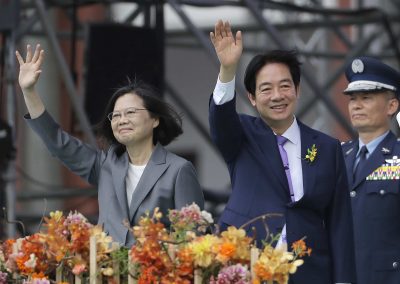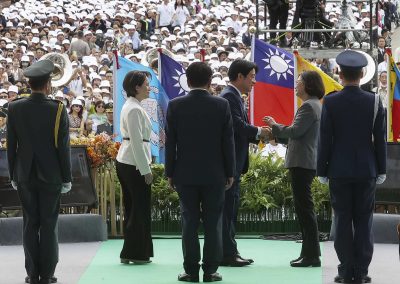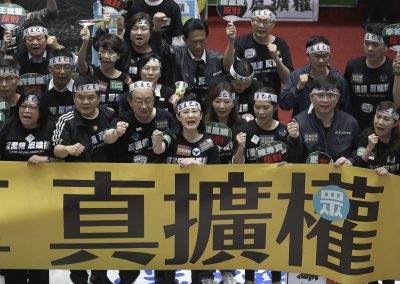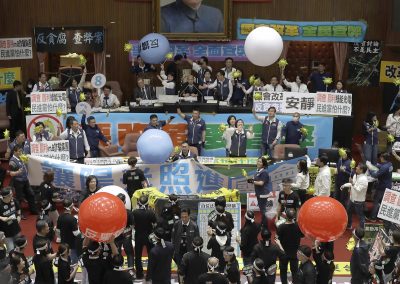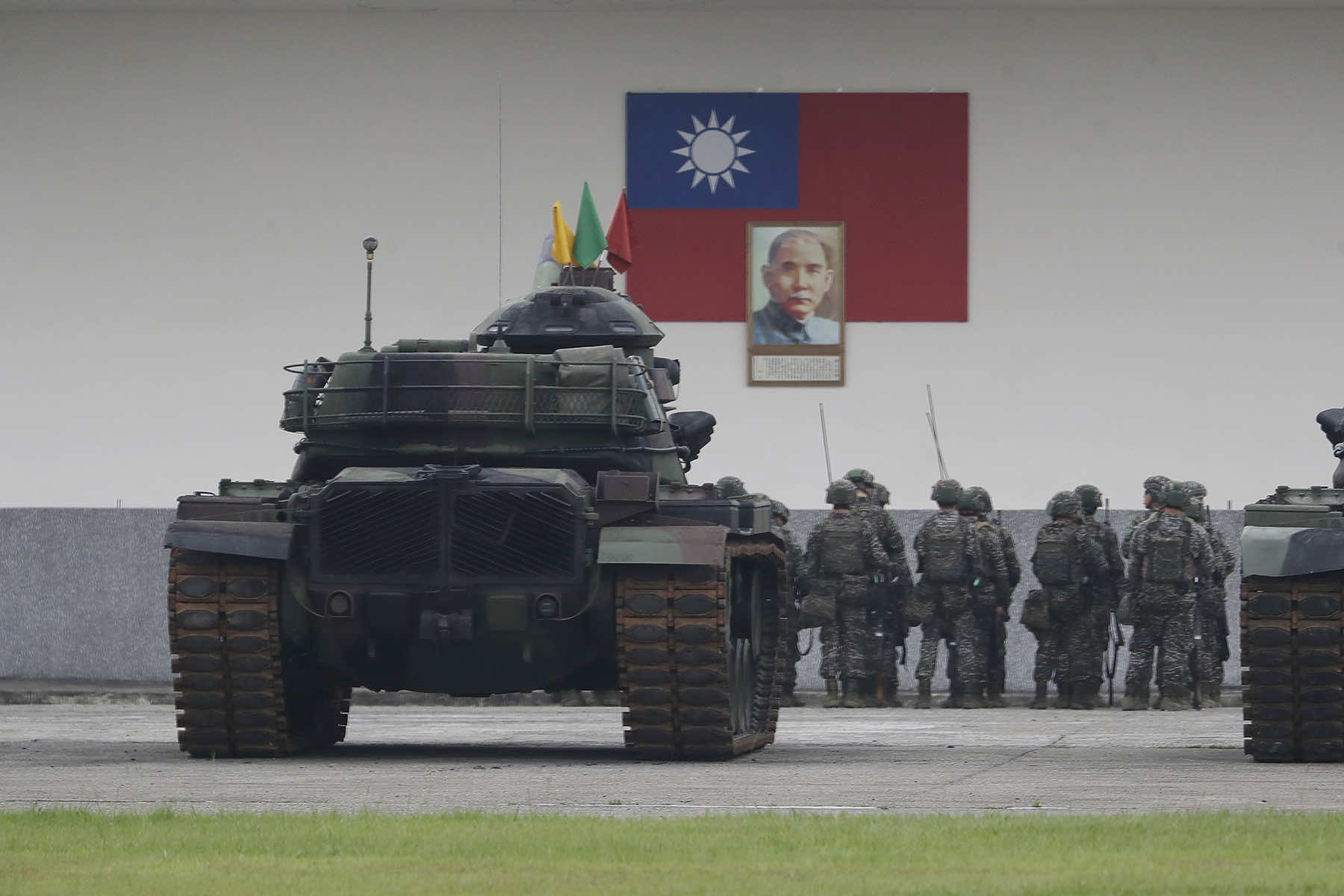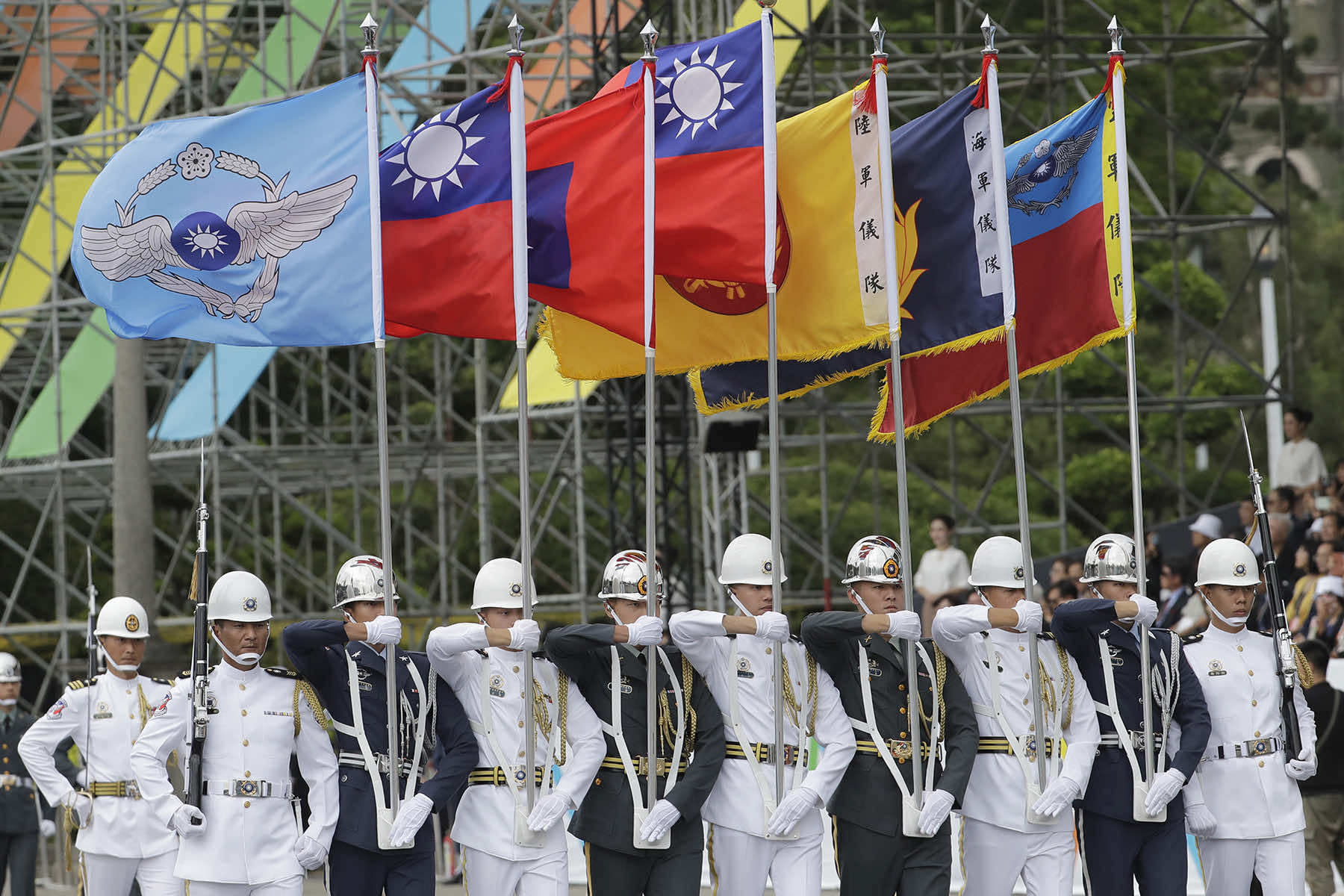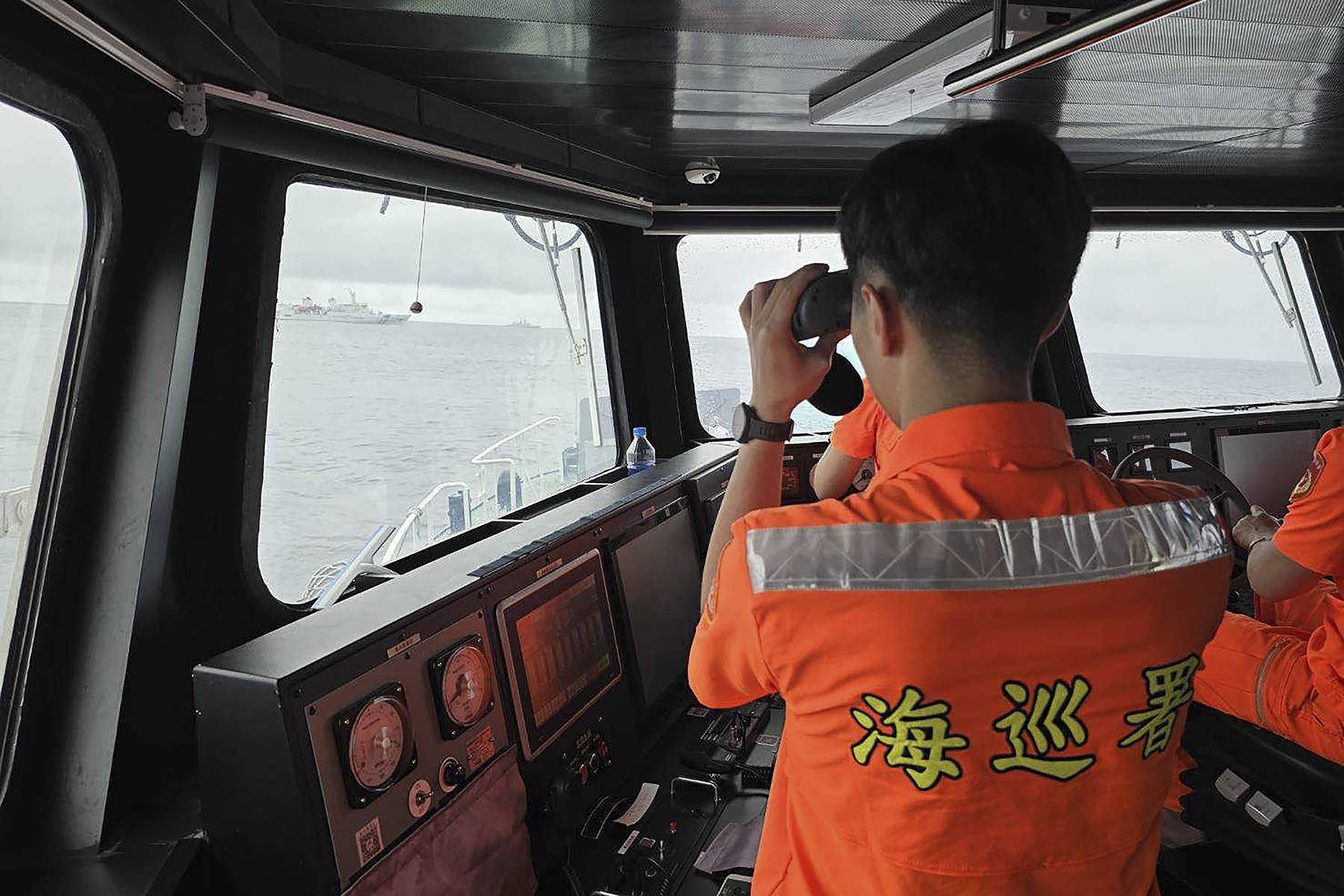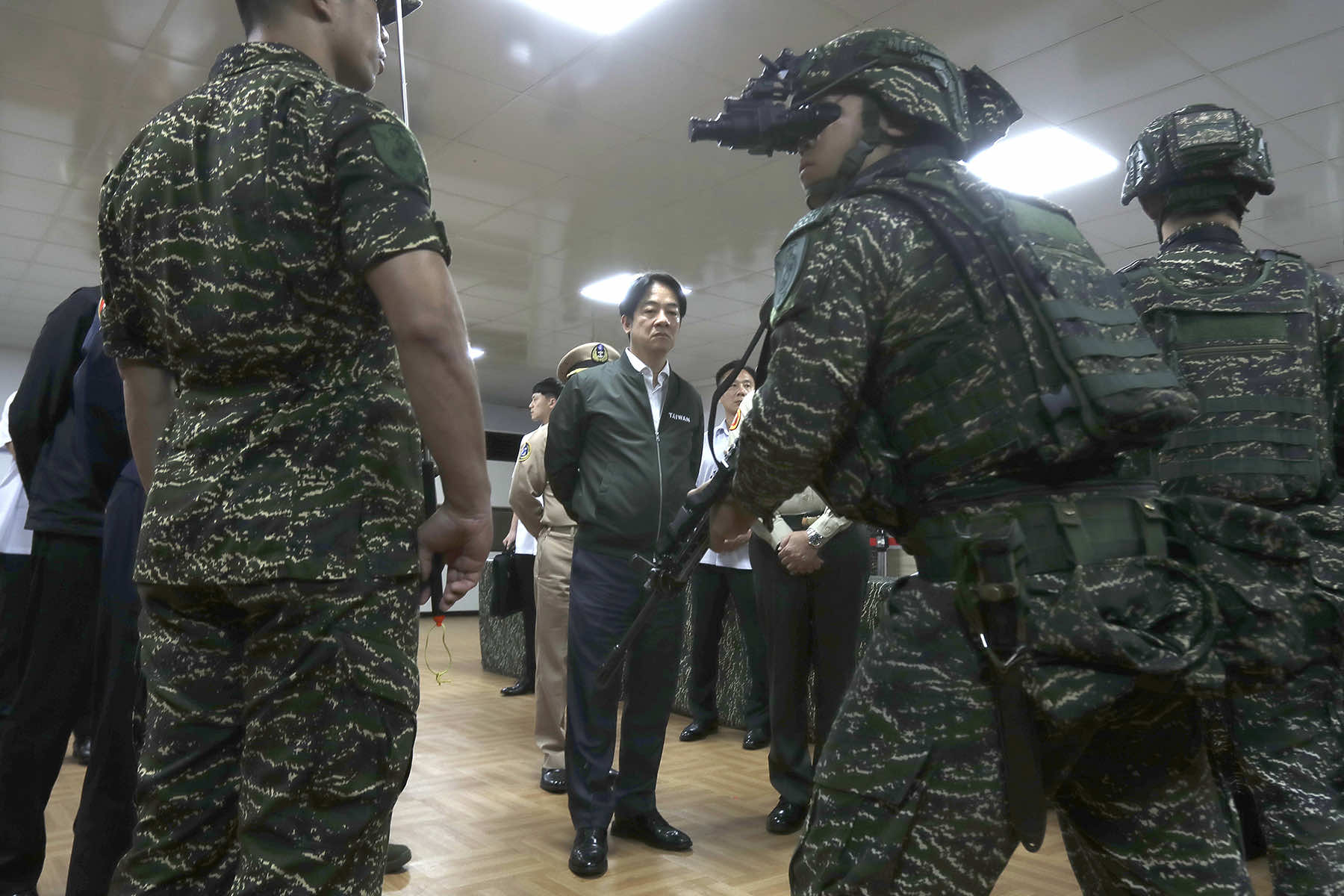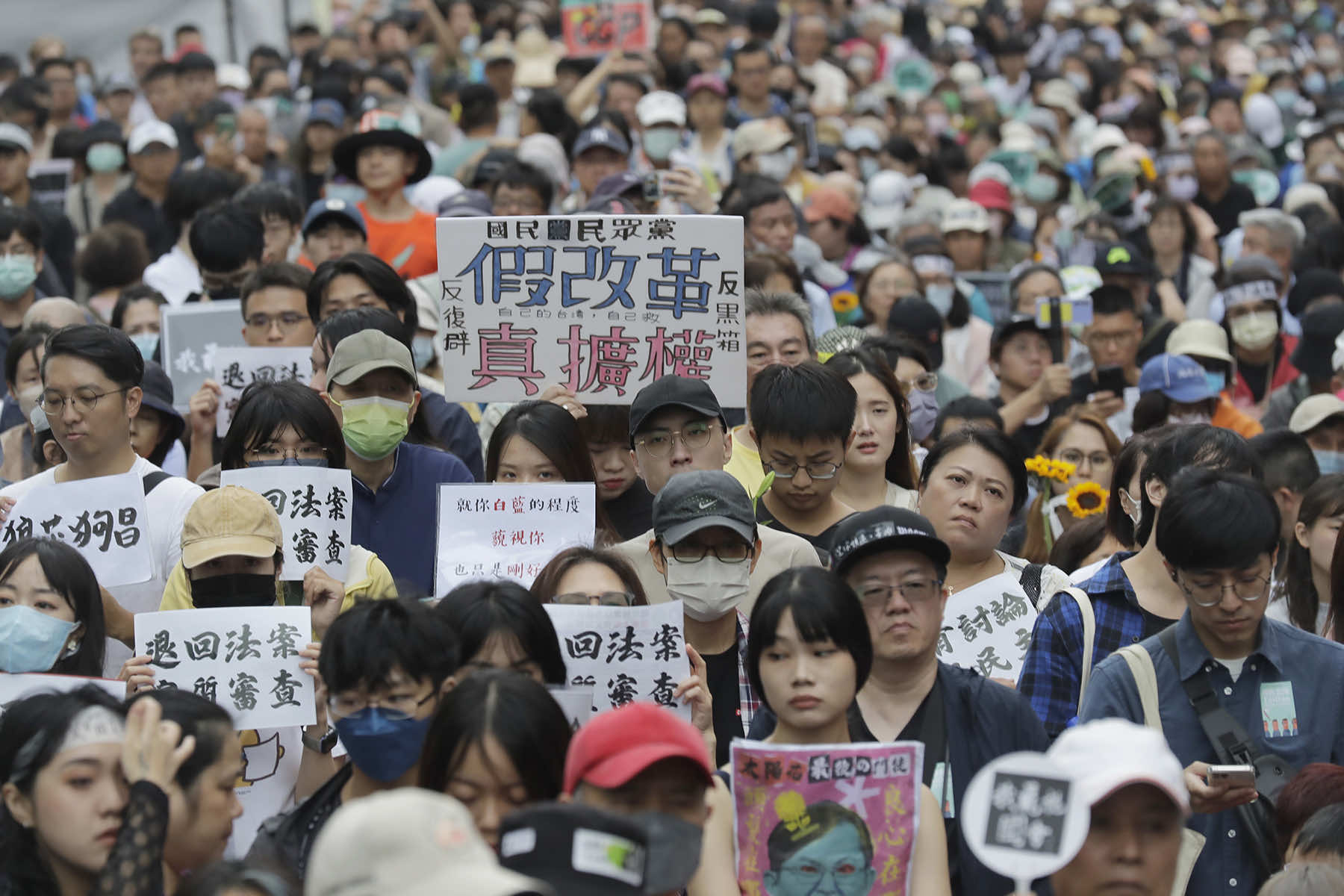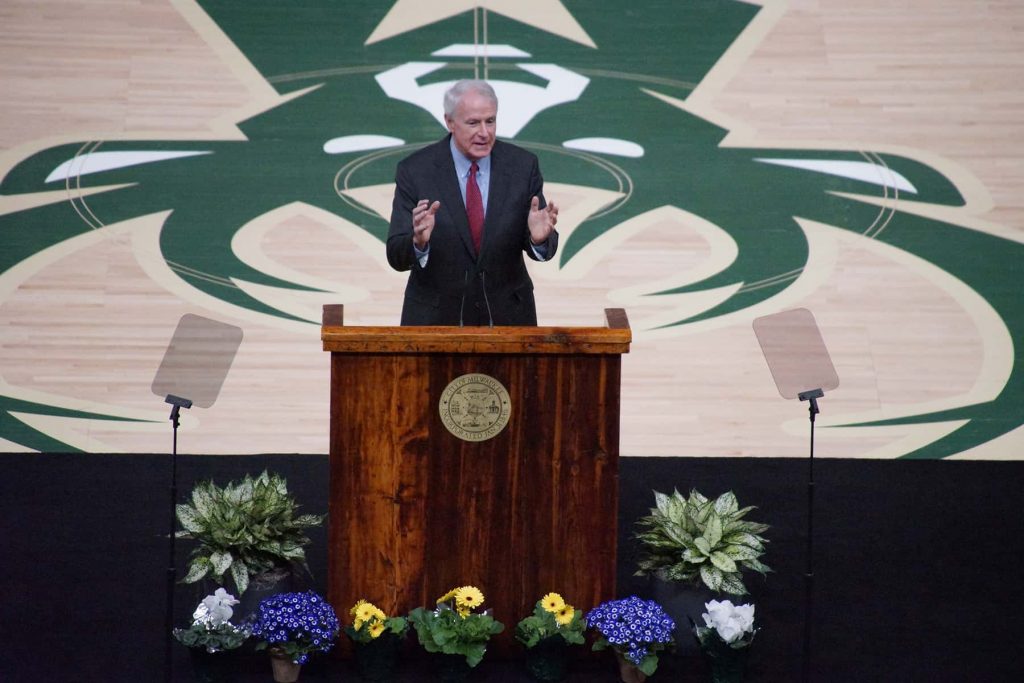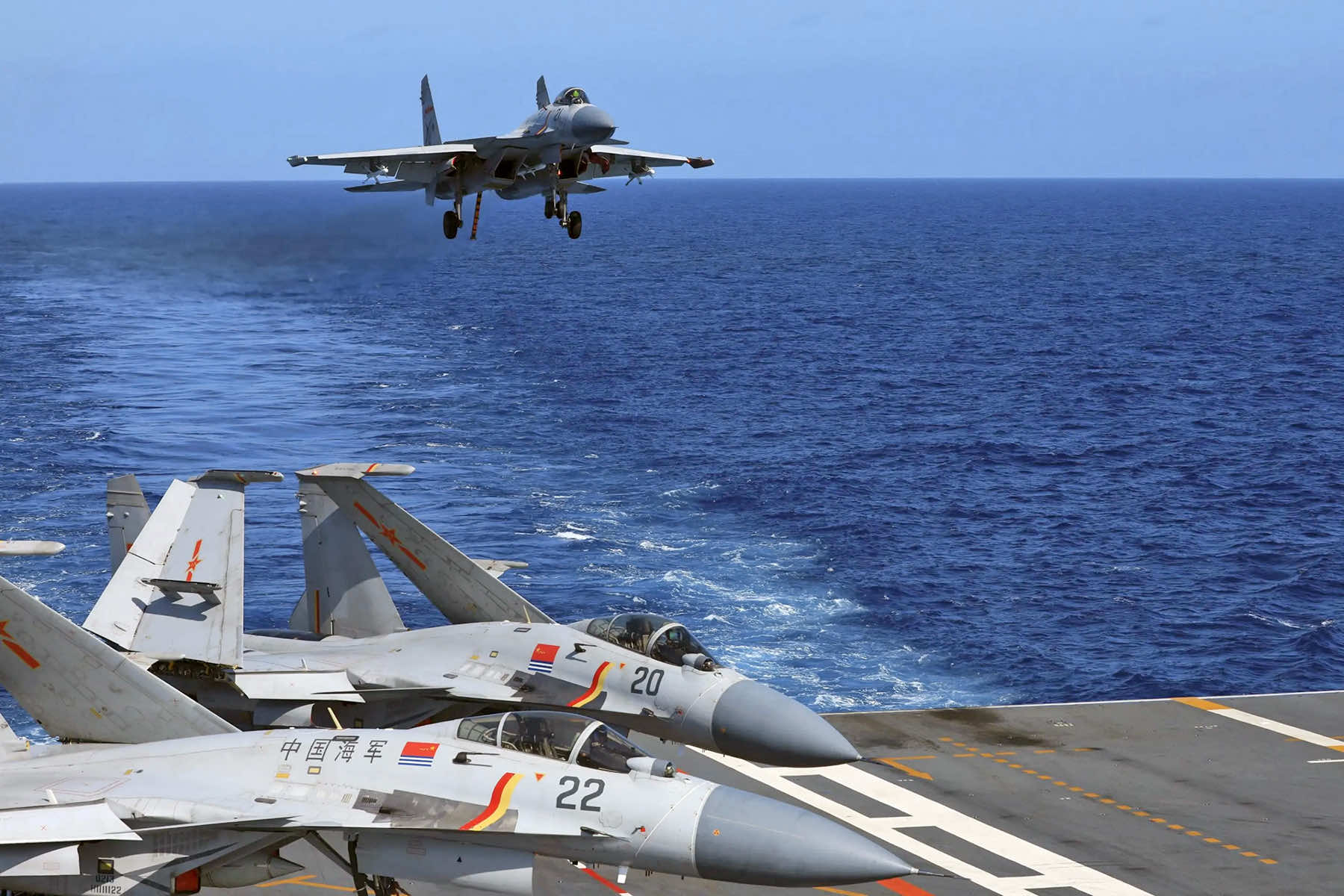
Taiwan tracked dozens of Chinese warplanes and navy vessels off its coast at the end of May, the latest in a series of large military exercises launched by Beijing to show its anger over the self-governing island’s inauguration of new leaders who refuse to accept its insistence that Taiwan is part of China.
China issued elaborate media statements showing Taiwan being surrounded by forces from its military, the People’s Liberation Army. A new video showed animated Chinese forces approaching from all sides and Taiwan being enclosed within a circular target area while simulated missiles hit key population and military targets.
Despite that, there was little sign of concern among Taiwan’s 23 million people, who have lived under threat of Chinese invasion since the two sides split during a civil war in 1949. Taiwan’s parliament was mired in a dispute between political parties over procedural measures, and business continued as usual in the bustling capital of Taipei and the ports of Keelong and Kaohsiung.
The defense ministry said it tracked 49 Chinese warplanes and 19 navy vessels, as well as coast guard vessels, and that 35 of the planes flew across the median line in the Taiwan Strait, the de facto boundary between the two sides, over a 24-hour period.
Taiwanese marine and coast guard vessels, along with air and ground-based missile units, were put on alert, particularly around the Taiwan-controlled island chains of Kinmen and Matsu just off China’s coast and far from Taiwan’s main island.
In his inauguration address, Taiwan’s President Lai Ching-te called for Beijing to stop its military intimidation and pledged to “neither yield nor provoke” the mainland Communist Party leadership.
“Facing external challenges and threats, we will continue to maintain the values of freedom and democracy,” Lai told sailors and top security officials as he visited a marine base in Taoyuan, just south of the capital Taipei.
While not directly referring to China’s moves, he said international society was concerned about Taiwan’s security, a likely reflection of its key role in supply chains for the most advanced computer chips as well as a democratic bulwark against Chinese moves to assert its control over the Asia-Pacific.
China’s “irrational provocation has jeopardized regional peace and stability,” the island’s Defense Ministry said. It said Taiwan will seek no conflicts but “will not shy away from one.”
“This pretext for conducting military exercises not only does not contribute to peace and stability across the Taiwan Strait, but also shows its hegemonic nature at heart,” the ministry’s statement said.
The Pentagon said the United States was “monitoring very closely” the joint Chinese drills. It said Beijing’s actions “are reckless, risk escalation, and erode longstanding norms that have maintained regional peace and stability for decades.”
“We strongly urge Beijing to act with restraint,” it said.
The United States cut formal diplomatic ties with Taiwan in 1979 and established official relations with the People’s Republic of China, then a Cold War ally against the Soviet Union. Despite an absence of formal relations with Taiwan and not officially recognizing it as a country, the U.S. is the island’s strongest ally and is obligated under a 1979 law to help Taiwan protect itself from invasion.
On May 31, the U.S. appointed a new representative to Taiwan to help defend against China’s threats. The American Institute in Taiwan (AIT), which acts as the de-facto embassy in Taipei, said that veteran diplomat Raymond Greene would take over from Sandra Oudkirk beginning in the summer of 2024.
Greene previously served as deputy head of AIT, as well as at the missions in Tokyo, and held various roles in Washington, largely focused on economic relations. His appointment came as Senator Tammy Duckworth and Senator Dan Sullivan led a delegation to Taiwan emphasizing strong bipartisan support for the island.
The government of Japan’s spokesperson, Yoshimasa Hayashi, said it continued to expect a peaceful settlement of the Taiwan issue through dialogue.
“The peace and stability of the Taiwan Strait is important not only for the security of Japan but the stability of all of the international community,” said Hayashi.
In his inauguration speech, Lai urged Beijing to stop its military intimidation and said Taiwan was “a sovereign independent nation in which sovereignty lies in the hands of the people.”
Lai’s relatively conciliatory tone came across as reassuring to foreign governments that may have been concerned about his past reputation as a firebrand, said Danny Russell, vice president of the Asia Society Policy Institute.
“There is virtually nothing that Lai could have said, short of ‘unconditional surrender,’ that would satisfy Beijing,” he said.
China’s military said its expanded exercises around Taiwan were punishment for separatist forces seeking independence. It sends navy ships and warplanes into the Taiwan Strait and other areas around the island almost daily to wear down Taiwan’s defenses and seek to intimidate its people, who firmly back their de facto independence.
“As soon as the leader of Taiwan took office, he challenged the one-China principle and blatantly sold the ‘two-state theory,'” the spokesperson of China’s Taiwan Affairs Office, Chen Binhua, said in a statement night.
The one-China principle asserts that there is only one China and that Taiwan is part of China under Communist Party rule. Beijing views Taiwan as a renegade province and has been upping its military threats even as the island’s electorate overwhelmingly favors de facto independence.
In Beijing, international relations professor Shi Yinhong at Renmin University of China said the drills and China’s verbal condemnations of Lai were intended to show Beijing’s anger toward Lai and his administration’s policies. Those include a continuance of his predecessor Tsai Ing-wen’s policies of building a strong national defense and resisting Beijing’s efforts to isolate Taiwan diplomatically.
“It may be regarded as chiefly necessary for convincing the Chinese people about the government’s determination and the armed forces’ progress in capability,” Shi said.
“But Lai, and in a degree the Taiwanese in general, experienced numerous such things. It will not change them and will make the U.S. and its core allies do more in their military support to Taiwan,” Shih said.
U.N. spokesperson Stephane Dujarric said it was following China’s drills closely. “We urge the relevant parties to refrain from acts that could escalate tensions in the region,” he said in a statement.
Chinese Foreign Ministry spokesperson Wang Wenbin, at a daily briefing, dismissed U.S. calls for China to exercise restraint in relation to the latest drills. The U.S. “is in no position to make such irresponsible remarks,” Wang said.
Washington is legally bound to provide Taiwan with the means to defend itself and considers all threats to the island a matter of “grave concern.”
The U.S. has been aiding in the upgrading of Taiwan’s equipment and training, even while its official policy remains ambiguous on whether American troops and those of regional allies would be dispatched to defend Taiwan in the event of a Chinese attack.
China’s exercises come on the heels of combined drills by U.S. and its Dutch NATO ally in the disputed South China Sea, a crucial waterway for global trade, fisheries and energy resources which China claims virtually in its entirety.
China routinely objects to activities in the region by foreign military forces it accuses of acting without mandate outside their home regions. China has particularly pressed its claims against the Philippines.
The Philippines Defense Secretary Gilberto Teodoro criticized Beijing’s increasingly aggressive actions in the South China Sea, without citing China by name. He spoke at a military ceremony marking the anniversary of the founding of the Philippine navy.
The Philippines, he said, would not tolerate aggression and provocative moves. Since territorial hostilities with China surged last year in the South China Sea, Philippine President Ferdinand Marcos Jr.’s administration has taken steps to forge new security alliances with a number of Asian and Western countries and allowed a U.S. military presence in more Philippine bases under a 2014 defense pact.

